Lutherans are taking action across the country! Below you will find our monthy State Advocacy Newsletter. Share with your friends!
———————————————
Washington, D.C.
Advocacy Director, Stacy Martin
Congressional budget resolution: This year, the U.S. Congress is working to pass a full budget
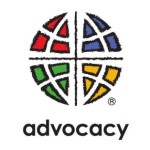
– an achievement that has not been accomplished for more than five years. As each chamber of Congress looks to combine their budget resolutions this month, ELCA Advocacy will be pursuing ways to enact faithful budget priorities to promote: holistic values that help raise families out of poverty, policies that protect our humanitarian efforts at our borders and abroad, and efforts to strengthen our national commitment to protecting God’s creation. Please join us in this effort as we hold our elected officials accountable. Visit our Action Center today!
U.S. releases climate change pledge: ELCA Advocacy applauds the recent announcement of the United States’ pledge to set new goals addressing the issue of climate change. This pledge includes a commitment to protecting public health by reducing pollution and promoting investment in abundant clean energy sources. The U.S. pledge is an important step toward the upcoming international agreement in Paris that will include similar commitments to addressing climate change. Sign our interfaith climate petition calling on the U.S. government to fulfill its commitment to addressing climate change at the upcoming United Nations climate negotiations.
Children’s Health Insurance Program: Last month, the ELCA Advocacy Network took action to help renew health care access for low-income children through the Children’s Health Insurance Program. Concerns for the program were flagged after its funding was threatened in ongoing budget resolution negotiations. After receiving waves of messages and calls from Lutheran advocates and members of the faith community, the funding successfully passed in the U.S. House of Representatives by an overwhelming bipartisan margin (392-37).
Vulnerable Immigrant Voice Act: Rep. Hakeem Jeffries, D-N.Y., reintroduced the Vulnerable Immigrant Voice Act in Congress, which would appoint needed legal counsel in immigration courts for unaccompanied children and people with developmental issues. Lack of access to counsel has resulted in children, asylum seekers and other vulnerable migrants having to represent themselves in court. Lutheran Immigration and Refugee Service, an ELCA partner, has strongly supported the legislation since it was first introduced last summer. As a church that recognizes the dignity of all God’s children, the ELCA supports the bill and its efforts to give vulnerable migrants the right to tell their stories in front of a judge.
New York, NY
Advocacy Director, Dennis Frado
U.N. Commission on the Status of Women: Last month, the 59
th session of the
U.N. Commission on the Status of Women took place in New York March 9-20 with a focus on achievements and remaining challenges since the adoption of the Beijing Declaration and Platform of Action in 1995. LOWC hosted 30 Lutheran delegates (six international
Lutheran World Federation and 24 ELCA members) and organized or collaborated in events including:
•”Silent No More: How Can Faith Communities Address Sexism and Gender Based Violence,” led by the ELCA Young Adult cohort;
•”Three Lives of Women 20 years after Beijing,” in collaboration with the World Council of Churches with reflections from Lutheran women from Palestine, Kenya and the United States;
•”Local People, Global Impact: The role of community-based organizations in the fight against the Ebola virus” (in West Africa), in collaboration with Nobel Peace laureate Leymah Gbowee’s foundation, with testimonies of the impact of the Ebola virus on communities – especially in Liberia – and what local women are doing about it; and
•Stocktaking event: “The role of faith in realizing the promise of Beijing” (toward gender equality) in collaboration with the ACT Alliance and the World Council of Churches.
———————————————
California
Mark Carlson, Lutheran Office of Public Policy- CA
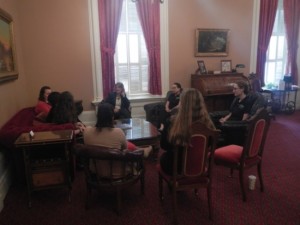
The Policy Council of the Lutheran Office of Public Policy – California met at the Southwest California Synod Office in Glendale with excellent attendance. Discussed was priority legislation related to child poverty (the bill repealing the CalWORKS/Temporary Assistance for Needy Families “Maximum Family Grant” limit for new babies passed its first committee) and care for creation (a new climate change law expanding the renewable energy portfolio, reducing fossil energy in transportation, and improving building energy efficiency faces its first committee April 7). There was moral deliberation on proposed assisted-dying legislation and alarm over the latest bizarre manifestation of direct democracy: initiative language submitted, but unlikely to qualify, that calls for shooting sodomites – recalling for some the murder of a gay couple in Redding in 1999, after which the killer asserted in a TV news interview that “It is not a crime to shoot a sodomite.”
Early childhood policy: The annual “Watercooler Conference” included an award presented to ELCA member Carol Larson, CEO of the Packard Foundation. Nobel economics laureate James Heckman of the University of Chicago stressed that compassion and economic efficiency converge in investments in early childhood.
Upcoming:
• Participation in a showing of ELCA World Hunger-supported “Thirsty for Justice,” on the human right to water, to San Francisco Friends School 8th graders visiting CalEPA
• Helping with the pre-Detroit Sierra Pacific Synod youth gathering (with Ryan Cumming of ELCA World Hunger)
• Organizing events for the Rev. Joe and Joyce Ellwanger, civil rights/justice leaders (“Strength for the Struggle”) in Northern California, including Pacific Lutheran Theological Seminary
———————————————
Colorado
Peter Severson, Lutheran Advocacy Ministry – Colorado
Minimum wage: The Colorado General Assembly recently considered legislation to raise the state minimum wage from the current $8.23/hour. House Concurrent Resolution 1001 would have put a measure before Colorado voters in 2016 to approve an incremental increase up to $12.50/hour by 2020. The resolution failed to achieve the required two-thirds yes vote, but citizen petitioners have vowed to gather signatures to put the measure on the 2016 ballot anyway.
Other legislation: Director Peter Severson recently testified at a hearing in support of House Bill 1258, which would establish a family and medical leave insurance program in Colorado. Currently, only 12 percent of Colorado workers have access to paid leave to care for new babies, seriously ill family members, or themselves. Lutheran Advocacy Ministry–Colorado continues to support other bills related to child-support payment benefits for low-income families, the Earned Income Tax Credit, and increasing the cap on appropriations for school lunches.
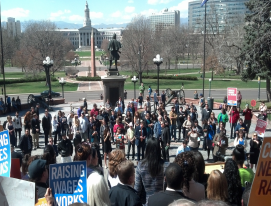 In the news
In the news: Labor activists held a press conference on the Capitol steps in support of raising the Colorado minimum wage (see photo). A House committee also recently killed a broadly-worded “religious freedom” bill similar to the one in Indiana after a press conference in which many political, business and religious leaders spoke out against it, including the Rev. Brian Rossbert, interim associate pastor at House for All Sinners and Saints Lutheran Church.
———————————————
Illinois
Budgeting: The proposed Illinois budget for fiscal year 2016 includes drastic cuts to human services programs that would affect people at-risk, including those served by our partner member Lutheran Social Services of Illinois.
Last year Lutheran Social Services of Illinois served more than 73,000 people through 190 programs at 85 sites across Illinois. The demographics of the clients served generally reflect those of Illinois’ population, with one important exception – more than 80 percent of clients report an annual household income under $15,000, compared to just 12 percent of all Illinois households. The organization provides critical programs for the state’s most vulnerable residents, including foster care, adoption, mental health services, alcohol and drug treatment, affordable senior housing, residential programs for people with developmental disabilities, and programs that help formerly incarcerated individuals integrate back into society.
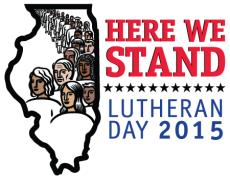 Lutheran Day 2015:
Lutheran Day 2015: On April 14 join Lutherans from across the state in Springfield to study, pray and take action for greater justice and compassion in Illinois.
———————————————
New Jersey
Sara Lilja, New Jersey Synod
State budget: Here in New Jersey, we are working on the proposed 2016 state budget. We are in a fiscal crisis. There is little money to support programs that assist the poor and other vulnerable populations. New Jersey has awarded more than $4 billion in tax subsidies and credits to businesses over the past six years in an attempt to spur economic activity and boost the state’s recovery from the Great Recession. The unprecedented growth in subsidies, however, has so far done little to significantly improve the state’s economy. New Jersey’s economic recovery remains far behind our neighboring states. Just 40 percent of the jobs New Jersey lost in the recession have been recovered; the state has the highest share of workers who have been unemployed for more than six months, and the state continues to lead the nation in the percentage of homeowners (1 in 12) who are in foreclosure. All this is shocking when you understand that New Jersey is also the fourth most affluent state in the nation!
We at LOGM are asking that policymakers take concrete actions to slow the subsidy surge and bring more transparency and accountability to the use of these tax breaks by placing meaningful caps on spending, requiring more information from companies receiving subsidies, including an automatic sunset provision, eliminating subsidies for existing jobs, and developing more stringent standards for these awards.
Care for communities: We are urging the state to include in the 2016 budget the following assistance for families in economic distress: restoring the Earned Income Tax Credit, expanding preschool, and expanding health care coverage. It comes as no surprise that food insecurity is also on the rise! We are supporting the expansion of the Breakfast After the Bell program, expanding state funding for SNAP, and increasing the staffing levels at county welfare agencies to deliver assistance in a timely manner to all those who are in need.
———————————————
New Mexico
Ruth Hoffman, Lutheran Advocacy Ministry – New Mexico
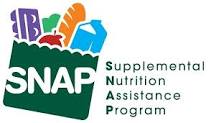 2015 legislative session
2015 legislative session: The regular session of the New Mexico Legislature came to an end at noon on March 21. This was a difficult 60 days with the Senate controlled by one party and the House by the other. LAM-NM worked on behalf of legislation that reflected our focus on issues that can affect the lives of the many people living in poverty and hunger in our state.
We worked in coalitions to successfully stop the passage of several major initiatives, including so-called “right to work” legislation and the elimination of drivers’ licenses for undocumented immigrants. We also worked with the Fair Lending Coalition to block passage of harmful predatory lending bills, while also proposing a 36 percent cap on storefront loans.
LAM-NM worked on a successful effort to increase the TANF monthly cash assistance amount by 5 percent and to add an additional clothing allowance for TANF children. We helped to secure funding for the SNAP Double Up program, which doubles the amount of SNAP benefits families can use at local farmers’ markets. A bill requiring that eligible inmates be covered under the Medicaid program immediately upon release from incarceration passed both houses of the Legislature and heads to the governor’s desk for consideration.
———————————————
Ohio
Ohio budget: The Ohio Legislature continues to focus its time on Ohio’s two–year budget (HB 64). This budget accepts a new normal of higher poverty and fewer resources. The biggest component of the budget is another tax shift increasing taxes on many while cutting the income tax to benefit the wealthiest Ohioans.
The Faith Coalition for the Common Good is an ecumenical coalition formed to advocate through the budget process for increased state funding for food security and affordable housing (and other services to help low-income Ohioans), and expanded resources for education. All of these things are possible if Ohio foregoes the proposed $5.6 billion in tax cuts.
The coalition organized a panel on March 18 in front of the Finance Health and Human Services Sub-Committee. The Rev. Gregory Kenderick (United Methodist Church) facilitated the panel of individuals who have experienced poverty. About 60 people from the faith community showed up to support this panel’s testimony. The testimony focused on the importance of public investments that help people transition out of poverty. The Ohio House Finance Committee is currently receiving amendments to the budget. We also submitted testimony to the House Ways and Means Committee opposing the proposed income tax cut.
The budget bill will move to the Senate in late April and to the governor’s desk by June 30.
———————————————
Pennsylvania
Amy Reumann, Lutheran Advocacy Ministry in Pennsylvania
Tracey DePasquale, Associate Director
Education: Tracey testified and brought presenters before the Basic Education Funding Commission to bring the discussion of trauma (poverty, homelessness, violence) as a possible weighting factor in funding.
Watch the hearing. We also continue to meet with lawmakers regarding a basic education
funding formula proposed by the Campaign for Fair Education Funding.
Analysis of recent federal data shows Pennsylvania is the most inequitable state in funding public schools.
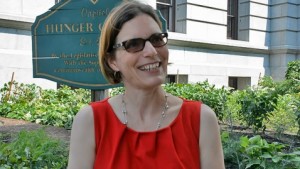 Immigration
Immigration: Tracey led an advocacy workshop for Dreamers at the first statewide Immigrant and Refugee Rights Convening. As an outcome, LAMPa’s Immigration Leadership Circle is assisting Dreamers in organizing a statewide caravan to tell their stories. In other immigration-related work, we applied to LIRS and the York County Prison Board for funding for the immigration detainee visitation program Walking Together/Caminandos Juntos.
Hunger: Amy met with John Hanger, secretary of Planning and Policy, to present
recommendations developed by the statewide food security coalition.
Environment: LAMPa’s Creation Care Leadership Team held a conference call on water issues with Jennifer Quinn, outreach coordinator for PennFuture. Outcomes include agreement to work statewide on storm water issues and to facilitate education and action on water issues with youth connected to the ELCA Youth Gathering and Walk for Water.
Youth: Southeastern Pennsylvania Synod youth leaders invited LAMPa to discuss advocacy issues involving youth and how they might engage in service-related advocacy after returning from Detroit. We continue to work on final details for Lutheran Day at the Capitol, this year part of Gettysburg Seminary’s Spring Academy.
———————————————
Virginia
Marco Grimaldo, Virginia Interfaith Center for Public Policy
Hunger: Since the conclusion of the Virginia General Assembly session, advocates have begun to regroup and focus more of our attention on government commissions and agencies. On March 25, Bishop Jim Mauney convened the Virginia Synod’s Child Hunger Task Group with the aim of coordinating the work of Lutheran churches and their partners in the community to feed more hungry kids and their families. Together we reviewed which schools participate in backpack programs, which churches and communities need more summer meals locations, and what schools should do to expand school breakfast and breakfast in the classroom. We also invited the governor’s staff to help us coordinate with state agencies. What we learn through task group efforts will also inform our advocacy efforts.
Payday Lending: We also worked to organize public testimony for the Richmond public hearing on payday lending held by the federal Consumer Finance Protection Bureau. The event included hundreds of people from all parts of Virginia and a strong representation of the faith community at the hearing. We also helped moderate the roundtable community conversation with the bureau’s administrator, Richard Cordray.
———————————————
Paul Benz, Faith Action Network
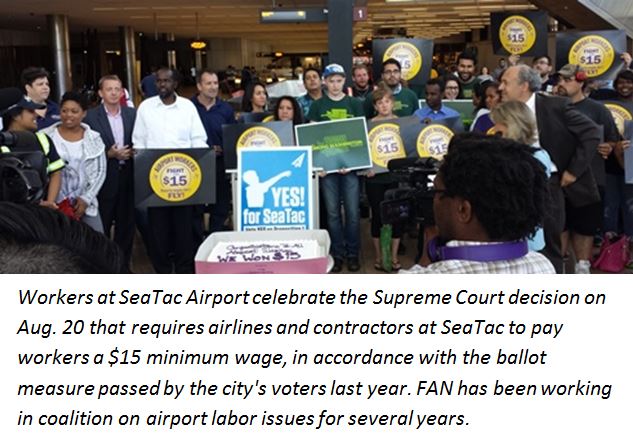
Only Three weeks left to go – so it’s budget time here! Of course, there are bills that are still alive and going through the legislative process, such as reforming our LFO (legal financial obligations) system, an anti-human trafficking bill, and a transportation bill providing more apprenticeships for communities of color and women. Both the House and Senate have approved their budgets, and these will now go to the budget leadership teams for negotiations to form a final budget to be sent to the governor – hopefully by the last day of session, April 26 – but we may need to go in to a special session during May. The House budget has new revenue in it, but the Senate budget does not – that is the main difference in terms of what gets funded and what doesn’t.
Washington budget: The budget programs that FAN is working on include:
• Emergency Food Assistance (food banks)
• State Food Assistance (additional assistance targeted to our Pacific Islander community who were brought here in the 1950s due to U.S. nuclear testing on their islands)
• WIC/Farmers Market Nutrition Program (supports local growers and low-income households)
• Breakfast After the Bell (expands time and location offerings for serving breakfast at public schools)
• Housing & Essential Needs/Aged, Blind, & Disabled (monthly cash assistance for the most vulnerable and those waiting for their SSI application to be processed)
• Pesticide Drift Proviso to assess needs for a neighborhood notification system
• Post-secondary education for inmates
Our primary budget issue is keeping revenue in the final budget – that is the BIG budget battle. FAN is doing its part by collecting signatures on a petition that will be delivered to budget leadership before the session ends.
Faith-based organizing: FAN is preparing for our four regional summits (Spokane May 17, Vancouver May 31, Seattle June 7, and Yakima June 14), where we gather by political districts for conversation on the key issues for our communities. We continue to grow our statewide network of advocating faith communities in terms of number (now at 97) and in terms of depth of relationships by keeping our liaisons engaged.
Spring denominational assemblies (FAN will be present with a staff person and display):
• ELCA in Pasco and Everett (April and May)
• United Church of Christ in Spokane (April)
• United Methodist Church (Pasco in June)
———————————————
Wisconsin
Cindy Crane, Lutheran Office for Public Policy in Wisconsin
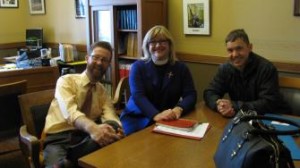 Joint Finance Committee public hearing
Joint Finance Committee public hearing: LOPPW’s director gave a statement about the governor’s proposed budget. Read the
statement by clicking here.Advocacy Day on April 29: LOPPW is part of the People of Faith United for Justice to organize a biennial advocacy day. Our focus will include threats to our safety net programs and legislation related to voter IDs. The LOPPW director is working with three additional groups to address specific safety net concerns.
Safe harbor: LOPPW and Cherish All Children held a rally to
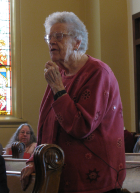
support legislation to help young victims of sex trafficking. The director attended a round table at the Department of Children and Family Services and another at the Department of Justice. She also met with the director of Wisconsin Women’s Council to discuss possible partnerships. June Kjome (
see photo at right), age 94, traveled from La Crosse to speak at the rally. When seeking justice “it’s good to be the headlights instead of the tail lights,” she said.
 – an achievement that has not been accomplished for more than five years. As each chamber of Congress looks to combine their budget resolutions this month, ELCA Advocacy will be pursuing ways to enact faithful budget priorities to promote: holistic values that help raise families out of poverty, policies that protect our humanitarian efforts at our borders and abroad, and efforts to strengthen our national commitment to protecting God’s creation. Please join us in this effort as we hold our elected officials accountable. Visit our Action Center today!
– an achievement that has not been accomplished for more than five years. As each chamber of Congress looks to combine their budget resolutions this month, ELCA Advocacy will be pursuing ways to enact faithful budget priorities to promote: holistic values that help raise families out of poverty, policies that protect our humanitarian efforts at our borders and abroad, and efforts to strengthen our national commitment to protecting God’s creation. Please join us in this effort as we hold our elected officials accountable. Visit our Action Center today! The Policy Council of the Lutheran Office of Public Policy – California met at the Southwest California Synod Office in Glendale with excellent attendance. Discussed was priority legislation related to child poverty (the bill repealing the CalWORKS/Temporary Assistance for Needy Families “Maximum Family Grant” limit for new babies passed its first committee) and care for creation (a new climate change law expanding the renewable energy portfolio, reducing fossil energy in transportation, and improving building energy efficiency faces its first committee April 7). There was moral deliberation on proposed assisted-dying legislation and alarm over the latest bizarre manifestation of direct democracy: initiative language submitted, but unlikely to qualify, that calls for shooting sodomites – recalling for some the murder of a gay couple in Redding in 1999, after which the killer asserted in a TV news interview that “It is not a crime to shoot a sodomite.”
The Policy Council of the Lutheran Office of Public Policy – California met at the Southwest California Synod Office in Glendale with excellent attendance. Discussed was priority legislation related to child poverty (the bill repealing the CalWORKS/Temporary Assistance for Needy Families “Maximum Family Grant” limit for new babies passed its first committee) and care for creation (a new climate change law expanding the renewable energy portfolio, reducing fossil energy in transportation, and improving building energy efficiency faces its first committee April 7). There was moral deliberation on proposed assisted-dying legislation and alarm over the latest bizarre manifestation of direct democracy: initiative language submitted, but unlikely to qualify, that calls for shooting sodomites – recalling for some the murder of a gay couple in Redding in 1999, after which the killer asserted in a TV news interview that “It is not a crime to shoot a sodomite.” In the news: Labor activists held a press conference on the Capitol steps in support of raising the Colorado minimum wage (see photo). A House committee also recently killed a broadly-worded “religious freedom” bill similar to the one in Indiana after a press conference in which many political, business and religious leaders spoke out against it, including the Rev. Brian Rossbert, interim associate pastor at House for All Sinners and Saints Lutheran Church.
In the news: Labor activists held a press conference on the Capitol steps in support of raising the Colorado minimum wage (see photo). A House committee also recently killed a broadly-worded “religious freedom” bill similar to the one in Indiana after a press conference in which many political, business and religious leaders spoke out against it, including the Rev. Brian Rossbert, interim associate pastor at House for All Sinners and Saints Lutheran Church. Lutheran Day 2015: On April 14 join Lutherans from across the state in Springfield to study, pray and take action for greater justice and compassion in Illinois.
Lutheran Day 2015: On April 14 join Lutherans from across the state in Springfield to study, pray and take action for greater justice and compassion in Illinois. 2015 legislative session: The regular session of the New Mexico Legislature came to an end at noon on March 21. This was a difficult 60 days with the Senate controlled by one party and the House by the other. LAM-NM worked on behalf of legislation that reflected our focus on issues that can affect the lives of the many people living in poverty and hunger in our state.
2015 legislative session: The regular session of the New Mexico Legislature came to an end at noon on March 21. This was a difficult 60 days with the Senate controlled by one party and the House by the other. LAM-NM worked on behalf of legislation that reflected our focus on issues that can affect the lives of the many people living in poverty and hunger in our state. Immigration: Tracey led an advocacy workshop for Dreamers at the first statewide Immigrant and Refugee Rights Convening. As an outcome, LAMPa’s Immigration Leadership Circle is assisting Dreamers in organizing a statewide caravan to tell their stories. In other immigration-related work, we applied to LIRS and the York County Prison Board for funding for the immigration detainee visitation program Walking Together/Caminandos Juntos.
Immigration: Tracey led an advocacy workshop for Dreamers at the first statewide Immigrant and Refugee Rights Convening. As an outcome, LAMPa’s Immigration Leadership Circle is assisting Dreamers in organizing a statewide caravan to tell their stories. In other immigration-related work, we applied to LIRS and the York County Prison Board for funding for the immigration detainee visitation program Walking Together/Caminandos Juntos.
 Only Three weeks left to go – so it’s budget time here! Of course, there are bills that are still alive and going through the legislative process, such as reforming our LFO (legal financial obligations) system, an anti-human trafficking bill, and a transportation bill providing more apprenticeships for communities of color and women. Both the House and Senate have approved their budgets, and these will now go to the budget leadership teams for negotiations to form a final budget to be sent to the governor – hopefully by the last day of session, April 26 – but we may need to go in to a special session during May. The House budget has new revenue in it, but the Senate budget does not – that is the main difference in terms of what gets funded and what doesn’t.
Only Three weeks left to go – so it’s budget time here! Of course, there are bills that are still alive and going through the legislative process, such as reforming our LFO (legal financial obligations) system, an anti-human trafficking bill, and a transportation bill providing more apprenticeships for communities of color and women. Both the House and Senate have approved their budgets, and these will now go to the budget leadership teams for negotiations to form a final budget to be sent to the governor – hopefully by the last day of session, April 26 – but we may need to go in to a special session during May. The House budget has new revenue in it, but the Senate budget does not – that is the main difference in terms of what gets funded and what doesn’t. Joint Finance Committee public hearing: LOPPW’s director gave a statement about the governor’s proposed budget. Read the statement by clicking here.
Joint Finance Committee public hearing: LOPPW’s director gave a statement about the governor’s proposed budget. Read the statement by clicking here. support legislation to help young victims of sex trafficking. The director attended a round table at the Department of Children and Family Services and another at the Department of Justice. She also met with the director of Wisconsin Women’s Council to discuss possible partnerships. June Kjome (see photo at right), age 94, traveled from La Crosse to speak at the rally. When seeking justice “it’s good to be the headlights instead of the tail lights,” she said.
support legislation to help young victims of sex trafficking. The director attended a round table at the Department of Children and Family Services and another at the Department of Justice. She also met with the director of Wisconsin Women’s Council to discuss possible partnerships. June Kjome (see photo at right), age 94, traveled from La Crosse to speak at the rally. When seeking justice “it’s good to be the headlights instead of the tail lights,” she said.